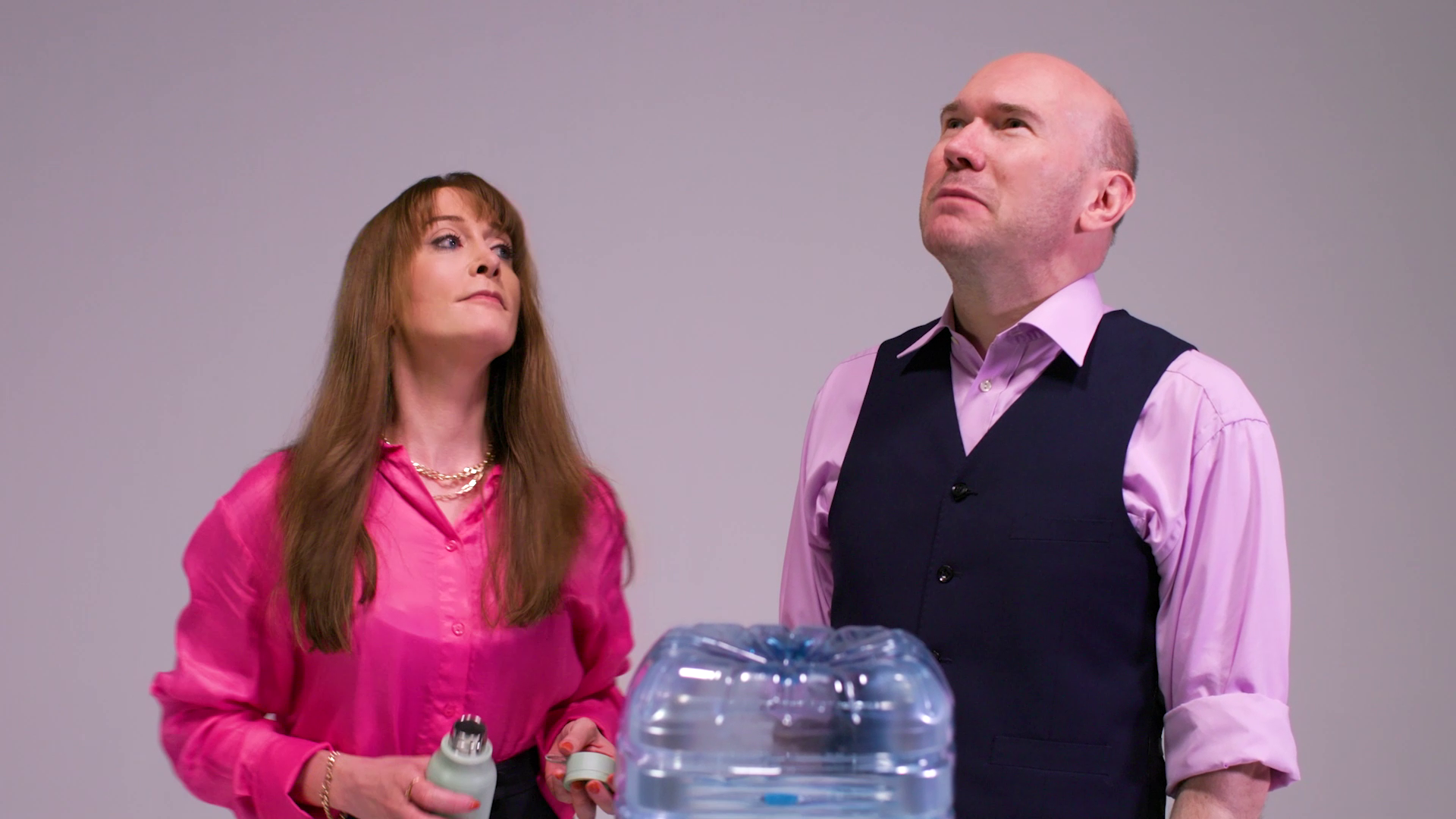If you were to burst into the office and shout, “Who wants to talk about periods?” how many people do you think would raise their hands? Chances are, not many — and not because periods are inherently boring or unimportant, but rather because most people feel uncomfortable or reluctant to talk about them.
The thing is, this is an issue that needs discussing. Periods directly affect a large chunk of your workforce. By extension, they affect the entire organisation. But due to the taboo around the subject, most people steer clear of it altogether, regardless of gender or seniority. As a result, women are expected to just get on with it, despite how they — and their work — are affected.
To create a more equal, productive, and empathetic workplace, employers need to dedicate more time and attention to period positivity. In this blog, we’ll highlight some key ways you can create a more period-positive workplace — and how outstanding learning materials can help.
Suggested reading: To learn more about how you can create a supportive, people-first work culture, check out our eBook: Connectors of People — The Future of Management in the Workplace.
Encourage two-way conversations
Communication is the key to understanding and accommodating people’s needs. But the sad fact is that most women still feel unable to discuss period-related issues with their managers.
You might be finding yourself thinking about your mate Dan, who feels compelled to tell the world about every cough, sneeze or stomach grumble he encounters to get a bit of pity (or get out of doing the snack run at work). We aren’t saying to go to that extreme — after all, we all know someone like Dan — but we are saying that bottling up how you feel is no good, either.
By encouraging an open dialogue between managers and employees, those on their periods will feel heard, understood, and supported. Instead of hiding how they are feeling, employees can share the emotional burden with someone they trust.
There are several ways you can improve communication and break down those invisible barriers that stop people from sharing their concerns, including:
- Regular one-to-ones that focus on well-being as well as performance.
- Flexibility around where people work.
- Open hours where employees can discuss any challenges they’re facing.
With all this in mind, managers have a responsibility to educate themselves about periods and how they might affect employees mentally and physically. This is particularly true for those managers who have no first-hand experience of what it’s like to have a period. One of the best ways to break down the stigma is through educational content that is humorous, lighthearted, and engaging. It gives managers a chance to educate themselves in their own time, and learn new ways to better support their team in a low-pressure, upbeat way.
Further reading: At Video Arts, we believe that video is the finest format for informal learning — and we have decades of success to back that up. To find out why, take a look at our e-book: The Long Lasting Power of Video Learning.
Shift attitudes towards periods
Many employees may simply feel that periods aren’t relevant to them. As a result, they might feel apathetic about the whole subject. Worse still, they might see them as a nuisance — a hindrance to workplace productivity. But these attitudes don’t help those who actually have to go through them.
To shift attitudes towards periods, we need to be upfront about the reality: periods can be uncomfortable, painful, and frustrating. And, as a result, they can affect productivity, mood and overall wellbeing at work, which is no good for anyone.
Really, periods are just a regular physical process. They are normal and healthy, but they can also cause considerable discomfort. For this reason, we must approach periods with a sense of respect and empathy, ensuring that we create a safe environment for all. If we don’t, we run the risk of a loss of reputation as well as a less productive, unhappier workplace – none of which is good for business!
By offering training that highlights the challenges that women face each month — and why that should matter to everyone, regardless of gender — you can take positive steps towards making women feel supported and creating a more empathetic work setting. This can manifest in many ways, including:
- Policy changes designed to prioritise period care.
- Improved working conditions.
- Increased patience and support — especially from men.
- Improved productivity, as women are given the flexibility to work in a way that suits their needs.
Provide educational resources
When it comes to attitudes towards periods, most issues are born out of plain old ignorance. Many men simply don’t know what their female colleagues are going through, how they might be suffering, or the lengths to which they are going to conceal their discomfort. Education is the key to changing this.
Training is powerful because it humanises an experience that’s often ignored, discussed in a detached way, or even mocked. That said, how you go about training people is all-important.
When it comes to breaking stigmas, crowding people into a stuffy room to discuss a sensitive subject probably isn’t the best way to go about things. People might feel uncomfortable. The pressure might get to them. Before you know it, Derrick from Accounts is cracking inappropriate jokes again, and you can just see the HR violation writing itself.
A better approach is to provide the resources to enable people to educate themselves in their own time. This takes the pressure out of the situation, allowing people to digest information and understand the importance of the subject without being distracted by group dynamics, not to mention Derrick’s “jokes”.
Video Arts’ bitesize training content can help break the ice around sensitive topics using the right kind of humour. It’s not uncommon for women to laugh at their own periods as a way of coping, and sharing in that humour helps to destigmatise them without mocking or belittling your female colleagues. By laughing about sensitive topics together, you make it less of an awkward subject — thus enabling better communication and a positive environment. As that old saying goes: it’s always better to be part of the joke than the punchline.
Further reading: Despite many people’s experience, workplace learning doesn’t have to be dull and formal. In fact, we believe that the best learning happens informally. To find out why, read our article: Why Your Employees Benefit from Informal Learning in the Workplace.
Offer additional support to your team
Women often have to downplay their period symptoms. This makes a difficult situation even harder — not only do they have to deal with the discomfort of their period, but they also have to pretend that they aren’t experiencing unpleasant symptoms, including:
- Discomfort and pain.
- Low moods.
- Low energy levels.
- Difficulty concentrating.
To make matters worse, many women feel like they have something to prove, particularly in male-dominated workplaces.
More often than not, those on their periods are simply looking for empathy and support, whether from their colleagues or manager, and the opportunity to be open about how they are feeling without criticism or shame.
While education is critical when it comes to shifting attitudes, there are plenty of practical steps you can take to support those on periods as well, such as:
- Extra sick days to help women manage their symptoms.
- Informal one-to-ones with managers.
- Free period products at work: “period poverty” is a real issue for those on lower incomes.
This way, women have the option of talking about how they are feeling on their period if they want to, but can equally just quietly utilise the other forms of support at their disposal. Each person has their own way of dealing with their periods, so it’s important to build a workplace culture that offers support without pressuring people to say or do anything they don’t feel comfortable with.
Workplace training can be a great asset to use when building this sort of culture, and the right kind of training should feel less like something forced upon you and more like a positive initiative designed to improve productivity and morale across their teams.
That’s the value of Video Arts: accessible, bite-size training that keeps it light while still making sure you’re learning and growing with each video.
Video Arts makes fostering a period-positive workplace easy
So, there you have it — educational content is the key to shifting attitudes, breaking stigmas, and fostering a more empathetic, period-positive workplace for all. But which educational content? Well, glad you asked.
At Video Arts, we’ve been making highly engaging and informative educational content for decades, infused with our powerful secret ingredient: humour. During that time, we’ve found that when learning is lighthearted and fun, it’s more enjoyable and memorable — especially when tackling more sensitive subjects such as periods. The result is more engaged learners and better outcomes.
When it comes to period-positivity, it’s up to managers to make employees feel comfortable talking about how they are feeling and what they need — and this starts with the right educational content. That’s where Video Arts can help.
So, over to you. If you want to make your workplace more period-positive, get in touch.






